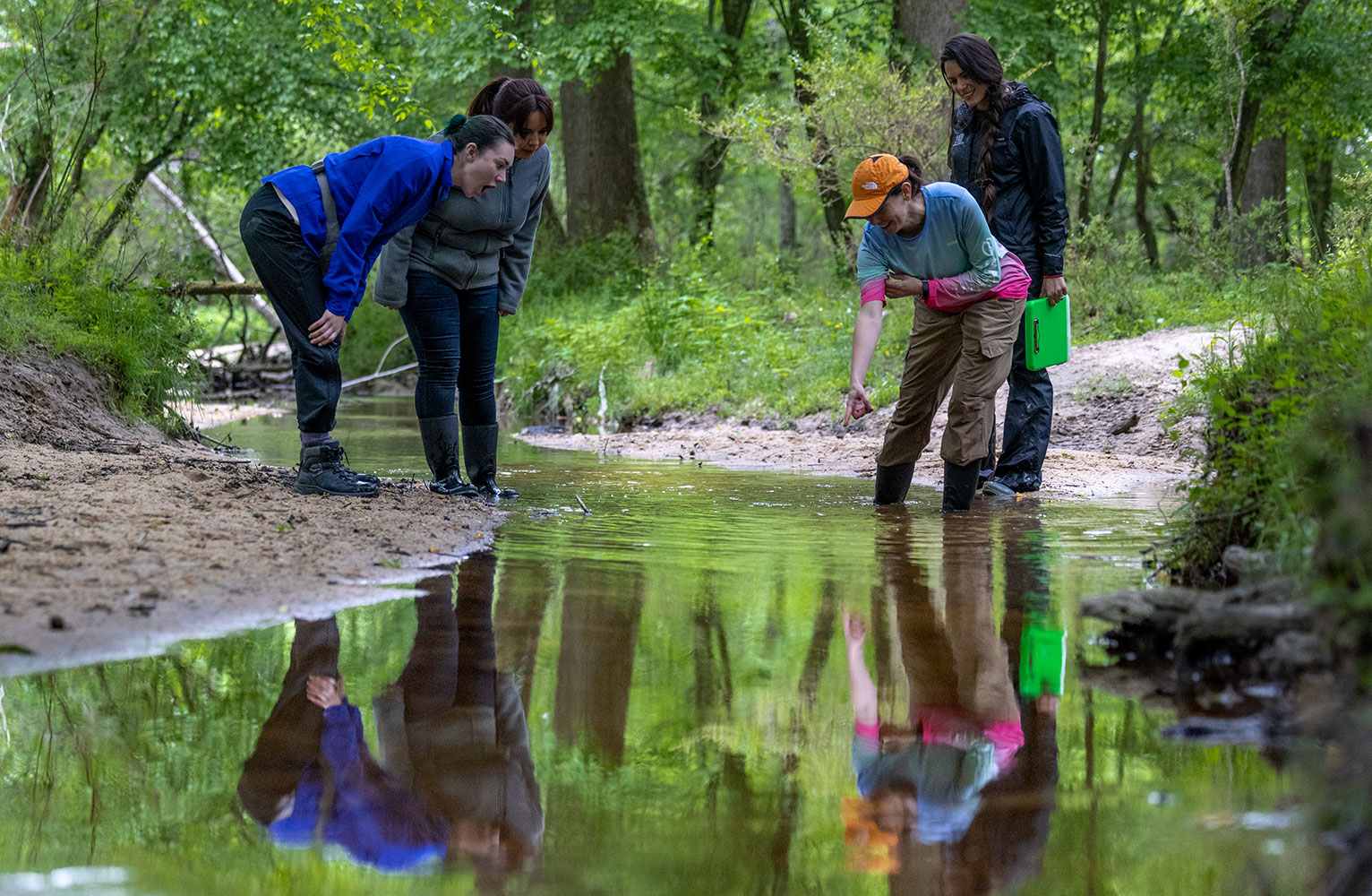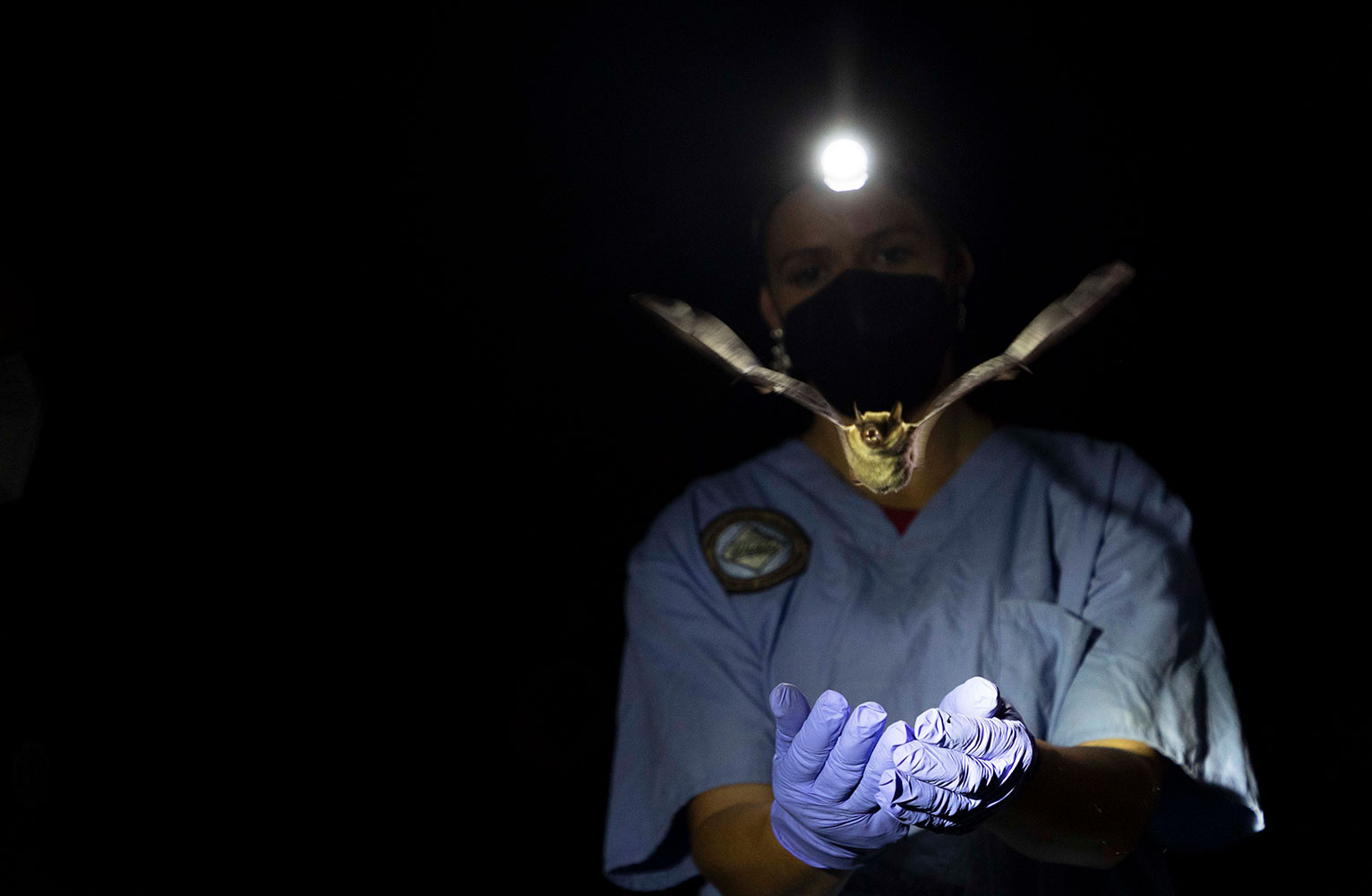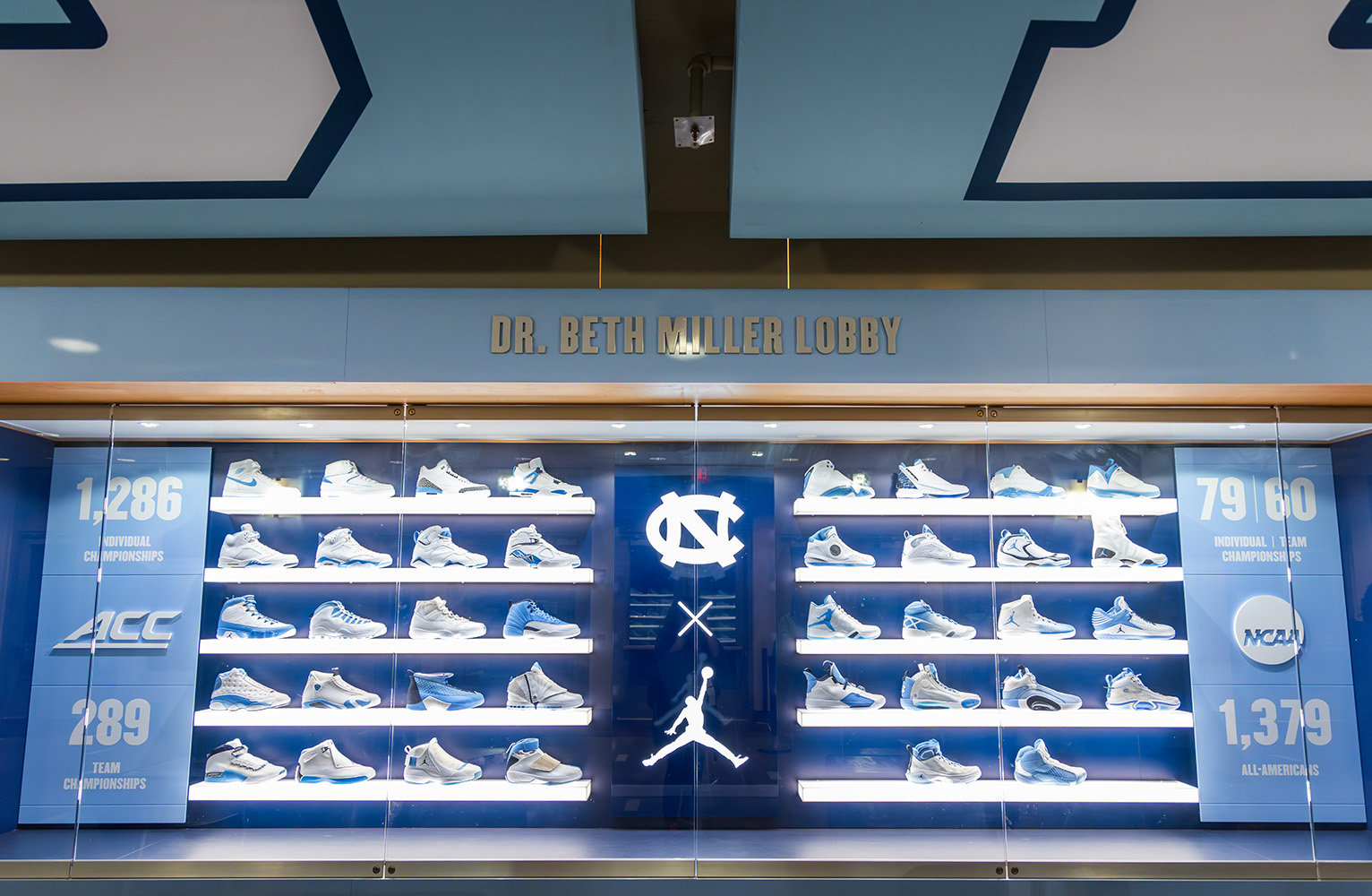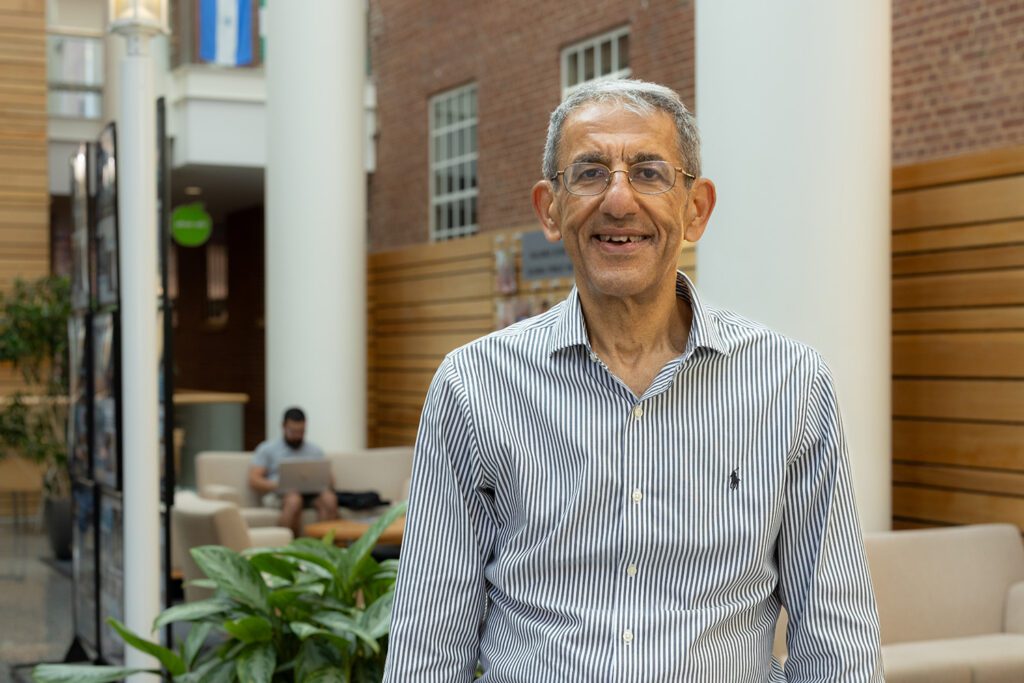
Opportunity in biostatistics is booming in North Carolina and across the nation. From environmental health research, analysis for litigation and clinical trials in cancer research to working at tech giants like Google and Microsoft, biostatistics is a prominent force in the Triangle region and beyond.
With biostatistics covering a multitude of career paths, Alumni Distinguished Professor Joseph Ibrahim recognizes the importance of making sure UNC Gillings School of Global Public Health students are well-equipped and marketable so they can make a greater impact in the community. He brings this philosophy into his classroom and his approach to mentorship.
“The name of the game is impact,” Ibrahim said. “What attracts students to biostatistics is not only the connections of clinical trials with applied areas as well as academic areas, but the potential impact that they can have in the field.”
Pushing students further
UNC Gillings’ Department of Biostatistics is a world leader in statistical research and practice for the purposes of improving public health, progressing biostatistical education and advancing the profession. Ibrahim is determined to support every student in their journey to become successful leaders.
Real-world application is one way Carolina biostatistics students gain the experience needed to become notable in the field. Students get hands-on experience by participating in the methodological and collaborative research conducted by faculty. Aside from being able to work with local entities on research projects that are shaping the future of biostatistics, as the director of graduate studies in the Department of Biostatistics, Ibrahim is in a unique position to help students achieve their goals.
“I love giving advice to students on the best courses to take, a trajectory for finishing on time or working in a particular research area,” said Ibrahim.
Working as a graduate research assistant under Ibrahim, Xinxin Chen, who is seeking a Doctor of Philosophy in Biostatistics, knows biostatistics is an incredible force in the scientific community and believes Ibrahim is preparing her for a successful future in the industry.
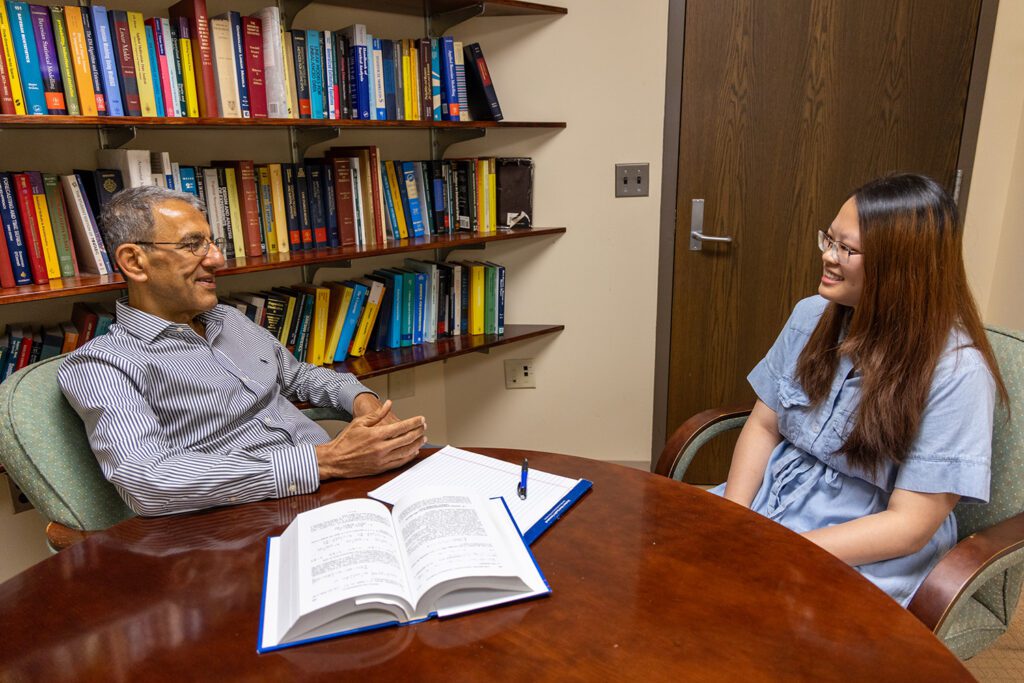
“What I find interesting in the biostatistics field is the ability to apply statistical knowledge to tackle real-world challenges and make a direct impact on health care and medicine,” Chen explained. “Professor Ibrahim’s mentorship has played a crucial role in shaping my interest in Bayesian statistics and preparing me with a solid background in statistical theory.”
Chen emphasized the tremendous impact Ibrahim has made on her education and even shared that his research was one of the reasons why she chose the biostatistics program at Carolina.
“In the courses I have taken with him, he explained the complex statistical concepts and methods clearly and presented a bigger picture of the topic, as well as how it could be applied to research,” Chen said. “He has also been very supportive and responsive during my work as a graduate research assistant, providing insightful suggestions and resources for solving problems encountered in our research projects.”
Through her work with him, Chen has also acquired a deeper understanding of the field and improved her research and writing skills, which she said will be beneficial for her future career.
For the last 35 years — 20-plus years at UNC-Chapel Hill — Ibrahim’s high expectations, rigorous courses, and dedication to service and training have guided students to success, earning them roles at prestigious pharmaceutical and biotechnology companies around the world, including Merck, Amgen, Eli Lilly, Novartis, Gilead, Pfizer, GlaxoSmithKline (GSK) and United Therapeutics. His former students have also built careers at the U.S. Food and Drug Administration, the National Institute of Environmental Health Sciences, and other institutes of the National Institutes of Health as well as at technology companies ranging from small start-ups to Apple and other tech giants.
Ibrahim acknowledged those achievements stem from challenging students to master complex material during the course of training them.
“It’s sometimes a struggle for them because the material is complex, but struggle can be good when their hard work pays off in a better understanding of the fundamentals of biostatistics,” Ibrahim said. “It makes me proud when they look back and say, ‘This guy was tough, and I had to work hard when taking the course; but I really learned a lot under his instruction, and my career benefited tremendously as a result.’”
Ibrahim’s favorite part of teaching, educating and mentoring students is the thrill he gets serving people. It’s important to him to help people succeed in their careers — he really wants his students to have good experiences.
“I represent UNC, not myself. I want to make sure students have a positive experience here. If it’s a bad experience, that hurts me personally.”
Biostatistics taking off
Ibrahim didn’t learn about the field of biostatistics until college, due to it not being a well-known field then. Now the field of biostatistics is established and incredibly competitive.
“Because of the rise of big data, genomics and tech, those subareas make it more prominent, so students know it’s going to be competitive,” Ibrahim said. “They are much more skilled computationally, having strong programming skills in addition to a strong and rigorous statistical background. Biostatistics as a discipline has become huge.”
Ibrahim shared that the number of students getting into the field has increased dramatically. In 2022–23, Carolina’s PhD program in biostatistics had nearly 500 applicants, which Ibrahim noted would have been unheard of during his college years.
Ibrahim recognized that due to the growing real-world applications of biostatistics, the job market is increasing immensely nationwide, particularly in North Carolina. “We have tremendous opportunities to make an impact with local companies in clinical trials research. The nice thing about biostatistics in North Carolina is that it has a tremendous density of opportunities for biostatisticians. And these companies need local support.”
The increased interest in the profession is critical, considering the job market is saturated with need and most data-driven companies’ biostatistics teams are significantly growing. Ibrahim mentioned several national companies with very large biostatistics departments. He also said that locally, the demand for biostatisticians is extremely high, thanks to two companies, each leading their respective fields and both founded by statisticians/biostatisticians: SAS and IQVIA (formerly Quintile).
The Research Triangle has been a draw for the pharmaceutical industry since the 1980s, when GlaxoSmithKline (now GSK) established their U.S. headquarters there and selected UNC biostatistics graduates to lead and populate their new statistics division. Since that time, numerous pharma and biotech companies have found their home in North Carolina, and the reputation of the biostatistics department at Carolina has had a lot to do with that.
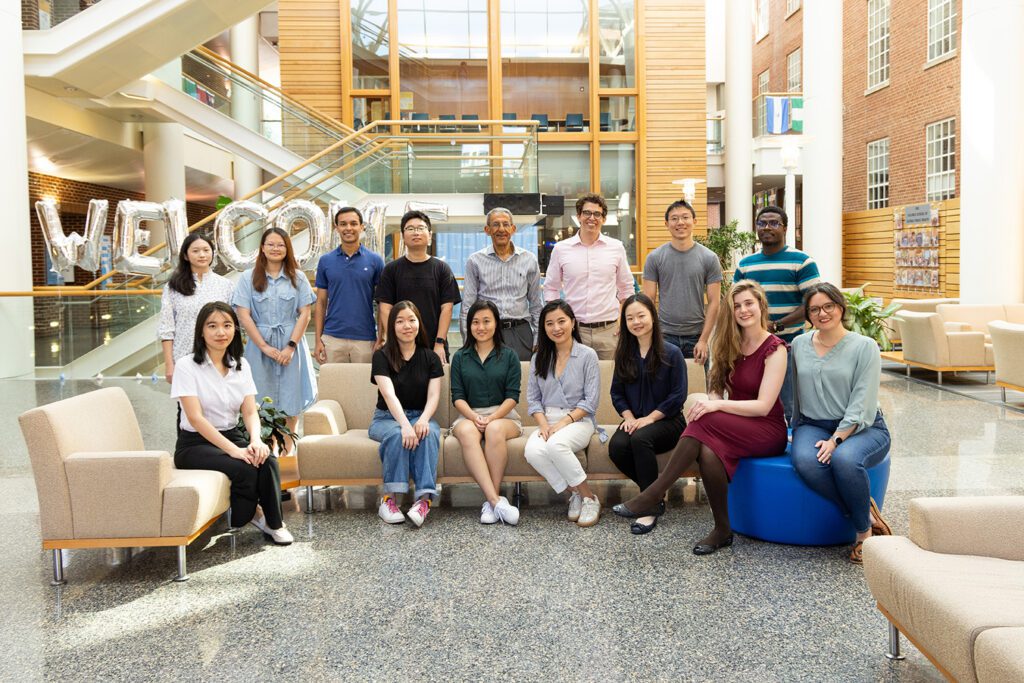
Invested mentorship
Coming from Harvard University, Ibrahim was attracted to UNC-Chapel Hill because he knew he could make an impact in the graduate program. He said he stays because the University invests in him, appreciates his work in the department and because he’s surrounded by “top-shelf faculty.” In return, Ibrahim invests even more in his students, serving others and serving them well. He is also a regular member of UNC Gilling’s Rosenau Society, giving back to his department in yet another way.
“I’m a loyal person and if UNC is going to invest in me, I better do something,” he laughed.
While extremely humble, Ibrahim’s “something” is providing students with extraordinary wisdom garnered through his many years of experience. Here’s just a sample of Ibrahim’s advice for students entering the field:
1. Prepare yourself. Starting at the undergraduate level, if you know you like statistics enough for a potential career, make sure you get a well-versed math background that will make you a competitive graduate student. “My advice to students is to prepare yourself math-wise and statistics-wise as much as possible,” said Ibrahim.
2. Do your homework on graduate programs. When you’re applying to graduate schools during your undergraduate studies, remember that all graduate programs are not the same. “There’s tremendous diversity in rigor, national and international recognition of the program, research, and curriculum,” Ibrahim stressed. “UNC has a huge name in this field while others may not. Do your homework to find out if the professors are active in research, what the degree program requirements are, how the department is led, and where the alumni are now.”
Visit sph.unc.edu/bios/biostatistics for more information about the Department of Biostatistics at the UNC Gillings School of Global Public Health.
_______________
Alumni Distinguished Professorships like Joseph Ibrahim’s are supported by gifts to The Carolina Fund. Established in 1961, these are the oldest professorships at Carolina, funded entirely by private donations from alumni.
Related Stories




